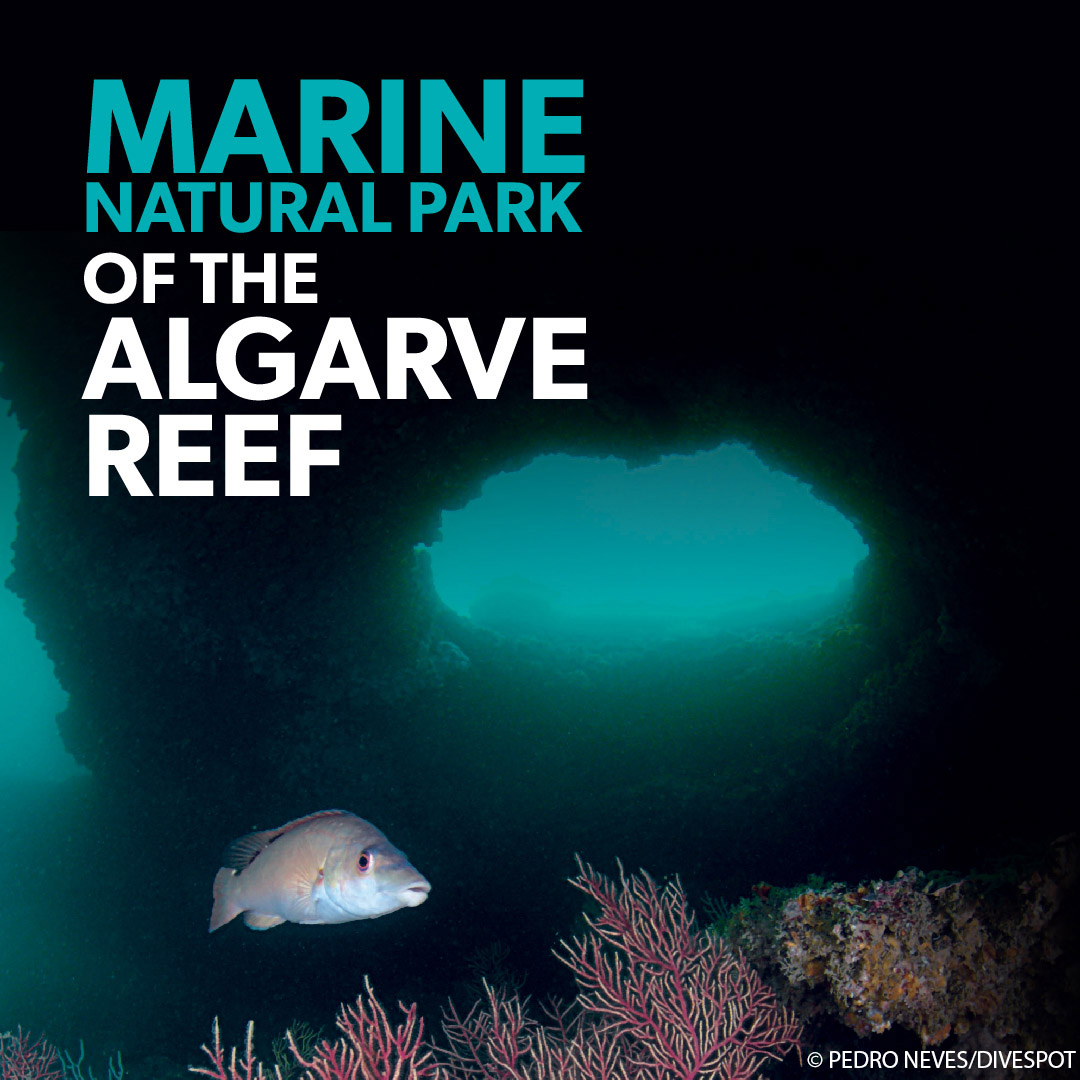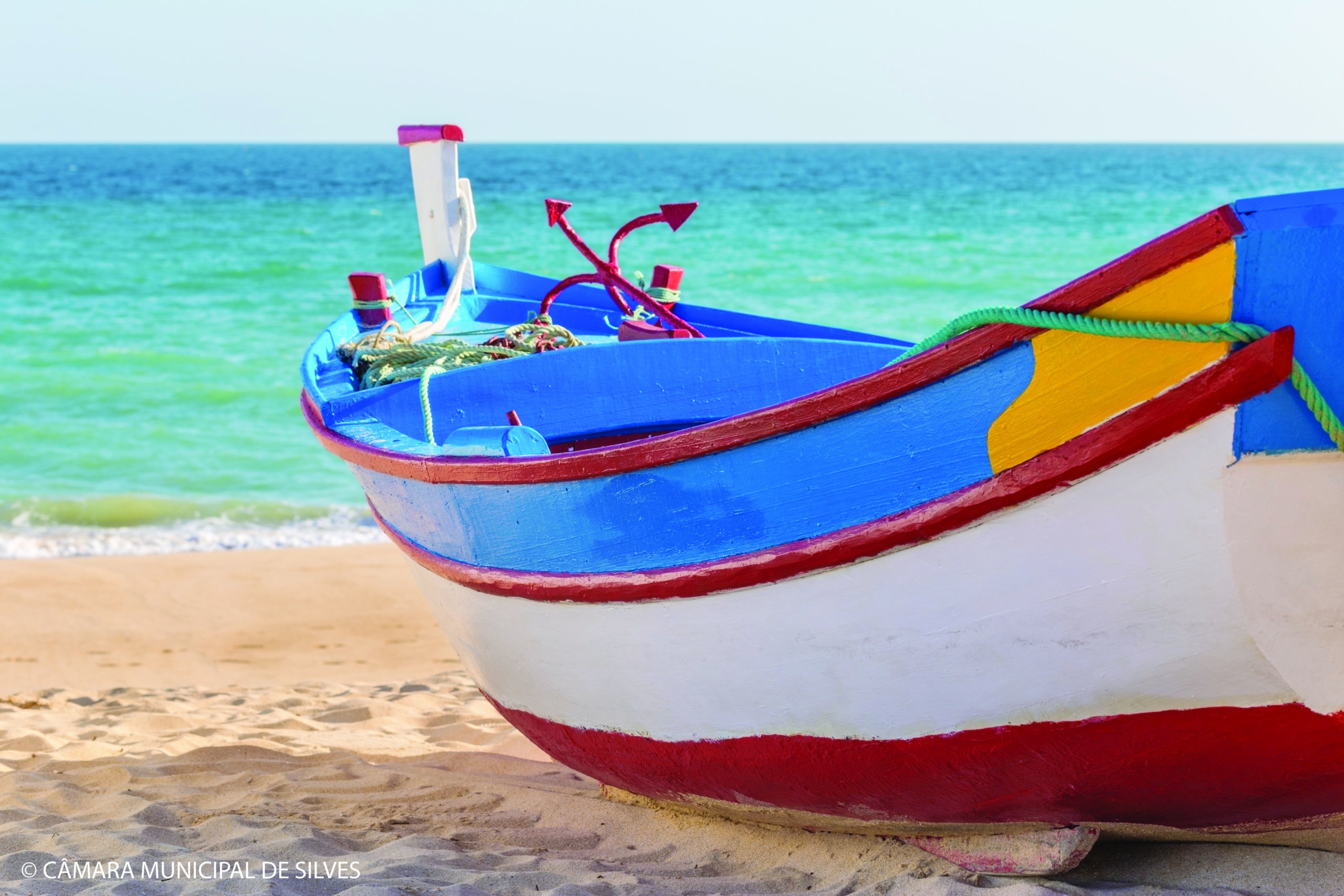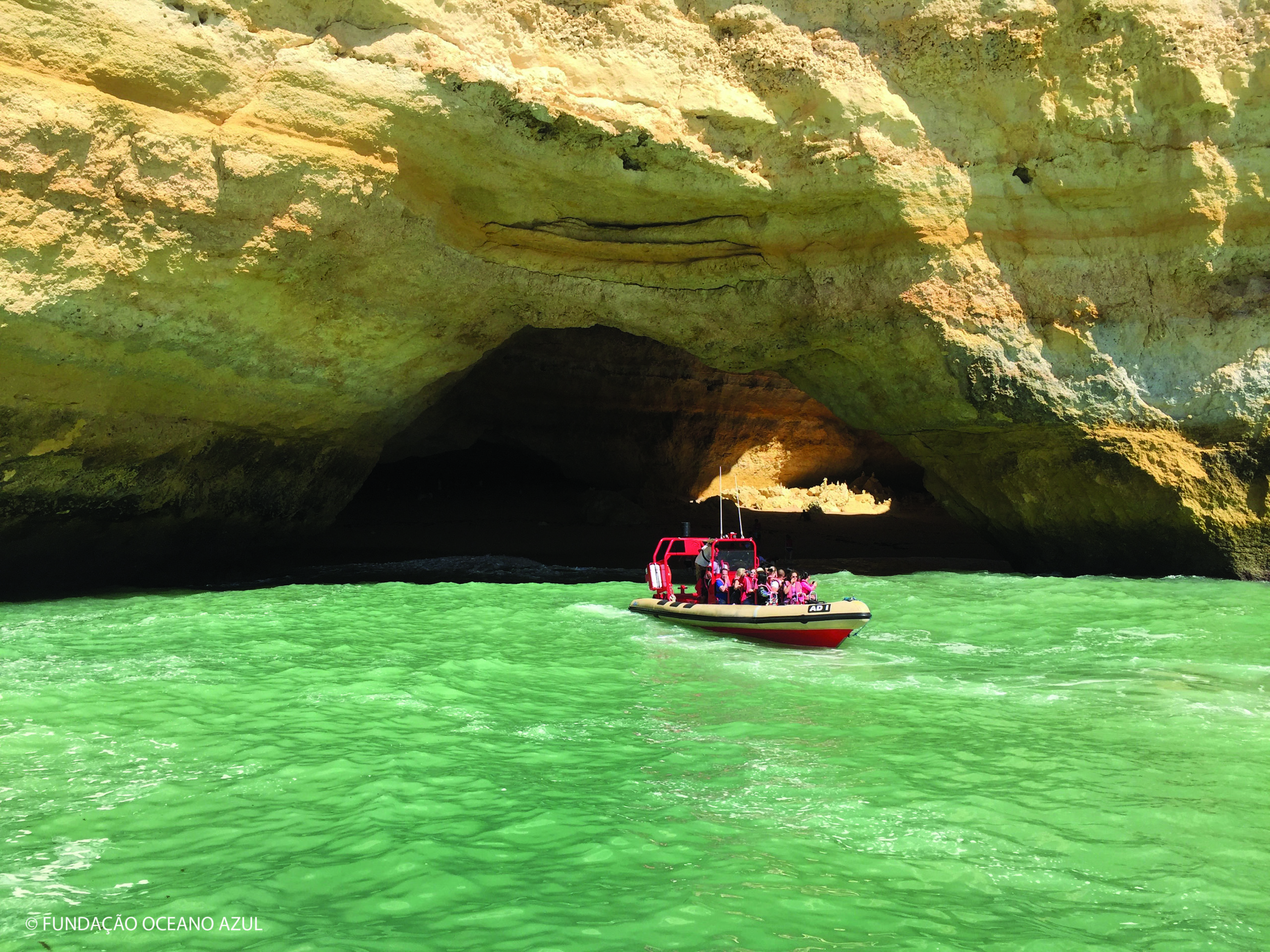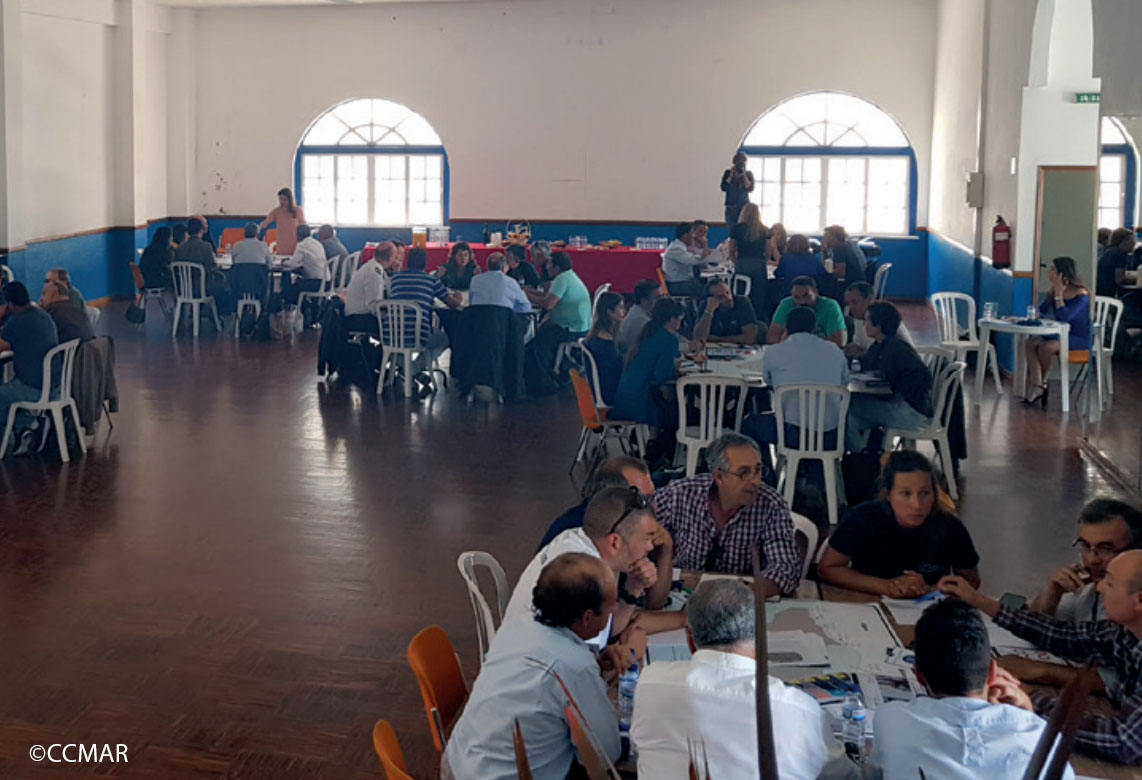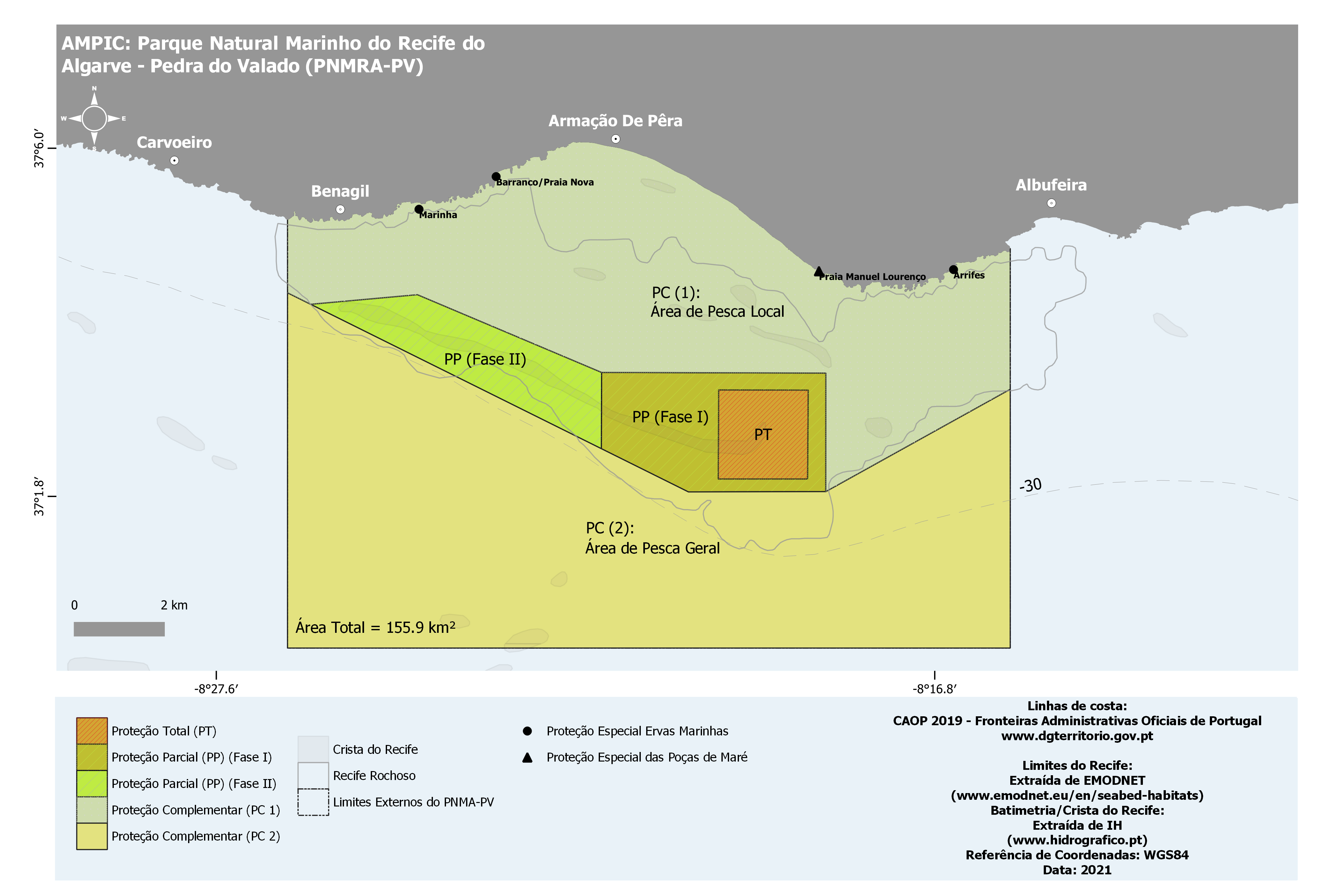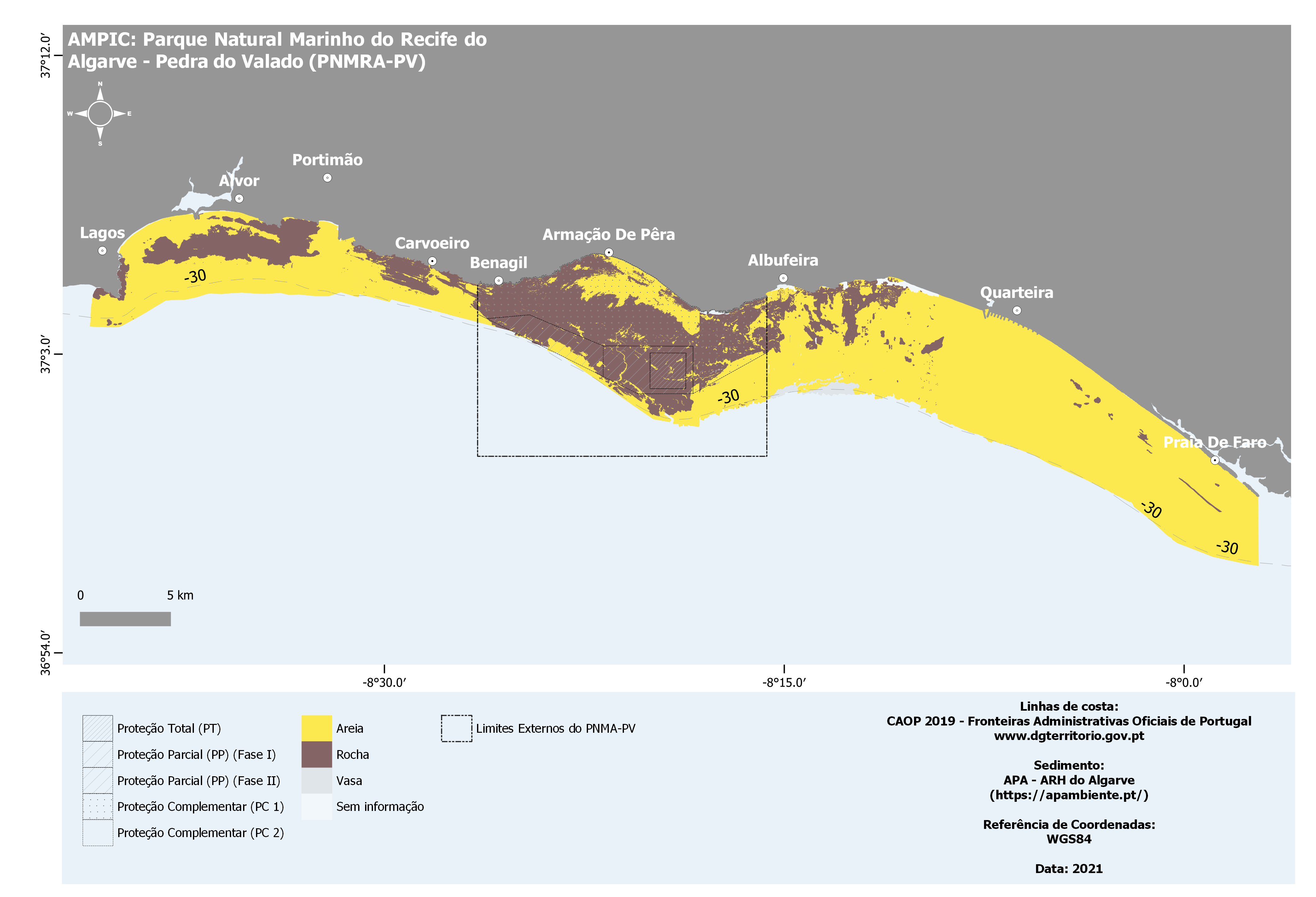On the coast of Albufeira, Lagoa and Silves, lies one of the largest natural coastal reefs in Portugal, benefiting from its unique natural conditions and marine biodiversity.
Highlights:
– Approximately 900 species occur here, which corresponds to more than 60% of all coastal species identified in Algarve;
– 12 new species for science and 45 new species for Portugal;
– 19 species with conservation status;
– Sensitive and vulnerable habitats such as gorgonian gardens, marine grasslands, beds of calcareous algae (Maerl) and ophiuroids;
– Unique oceanographic conditions that favor the development and larval survival of several species of fish, such as sardines, functioning as nursing grounds.
Studies by The Centre of Marine Sciences of the University of the Algarve (CCMAR/UAlg) from the past 20 years identify this reef as one of the most rich and productive areas of the region, with many species of commercial interest and for conservation.
However, this reef is subject to significant pressures from fishing and tourism, putting the conservation of the natural values of this important marine ecosystem at risk. Subsequently, also negatively affecting traditional economic activities that depend on these natural values.
Having been alarmed by local authorities on the need to protect this reef as well as its small artisanal fisheries, Oceano Azul Foundation and The Centre of Marine Sciences of the University of the Algarve promoted and facilitated a unique participatory process in Portugal, with the involvement of the Municipalities of Albufeira, Lagoa and Silves, in addition to dozens of local, regional, and national entities. This process occurred during a timeframe of almost 3 years and involved more than 70 entities, resulting in the creation of a Marine Protected Area of Community Interest in Algarve: Marine Natural Park of the Algarve Reef – Pedra do Valado.
The area in question is situated between the Alfanzina Lighthouse (Western point) and Albufeira Marina (Eastern point), extending to a depth of approximately 50m, totaling an area of 156 km2.
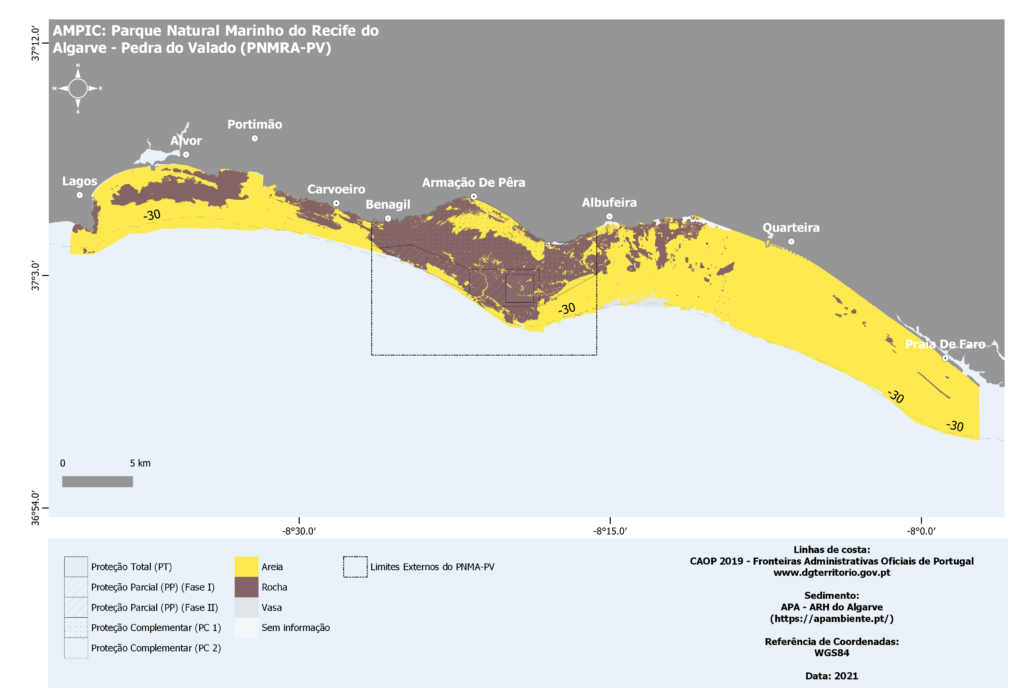
The creation of this Marine Protected Area of Community Interest (MPACI), is based on two fundamental principles:
– Solid technical-scientific foundation;
– Active participation of all interested parties, including professional and recreational fishing associations, representatives of maritime-tourism companies, regional, local and central administration, scientific research centres, sports federations, maritime authority, schools, non-governmental organizations and businesses, totalling 74 entities. Constituting 6 presential sessions, more than 60 bilateral meetings and a final session presenting the zonation of the proposal and management of the marine protected area.
This unique and innovative participatory process in Portugal, results from a collective drive to protect this reef in Algarve and to promote the sustainability of traditional economic activities that depend on it. In parallel, there was a strong desire for this area to be built via a co-management system that counts on the active participation of interested local entities, from the conceptualization to its classification, implementation, and management.
These entities believe it is possible to foster the use of the ocean in a sustainable way, by implementing processes that value activities, resources, and territories while at the same time, protecting natural capital, increase income of fisheries, promote quality tourism, and increase ocean literacy among the communities. To do so, it is fundamental to decrease the impacts of human pressures and promote the valuing of economic activities. This approach contributes to the realization of a model of change, recommended by Oceano Azul Foundation, with the goal to protect, promote, and value blue natural capital.
The proposal presented to the Government for the creation of the Marine Natural Park of the Algarve Reef – Pedra do Valado will thus provide the country with an innovative governance mechanism where the main local entities will participate in the management and implementation of this Marine Protected Area.
The way in which different organizations representing the community and regional interests evolved during this process is an undisputable sign of responsible citizenship striving to develop Algarve and the country.


